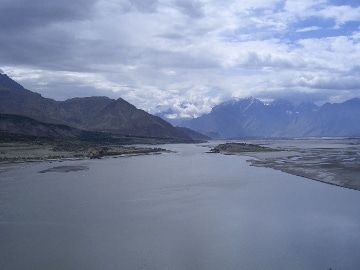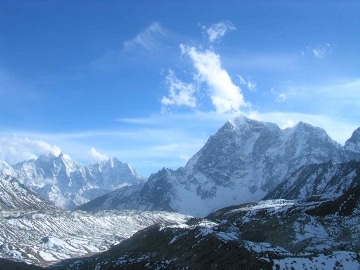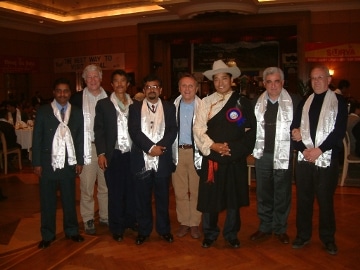Project HKKH PARTNERSHIP

The HKKH Partnership project is being carried out in the largest and the youngest mountain region in the world, Hindu Kush – Karakorum – Himalaya (HKKH), which encompasses parts or the entire countries of Afghanistan, Bangladesh, Bhutan, China, India, Nepal, Myanmar and Pakistan. The project was conceived by Ev-K2-CNR and funded by the Italian Cooperation (MAE-DGCS) through IUCN. The Executing Partners are Ev-K2-CNR, ICIMOD, CESVI and IUCN, along with several local stakeholder institutions in Nepal, Pakistan and China. Activities have been underway since July 2006 and will conclude in June 2009.
OBJECTIVES
Bearing in mind the priorities defined in the World Summit on Sustainable Development (WSSD) Draft Plan of Implementation and considering the recommendations made for achieving successful implementation of Agenda 21, the project aims to contribute to the consolidation of institutional capacity for systemic planning and management at the local, national and regional levels, focusing on poverty reduction and on biodiversity conservation, through policy development and implementation programs in the HKKH region.


Specific Objectives:
1) Provide tools and instruments to facilitate the consistency of various national-level actions in area based planning and management, within the framework of regional level systemic planning and monitoring.
2) Establish a process of application of the acquired capacities and a Decision Support System (DSS) by individual countries in systemic planning and management of mountain areas at a local/ national or transboundary level, within the framework of sustainable mountain development.
Ev-K2-CNR has made significant contributions to the development of the Decision Support Toolbox conceptual framework and approach. A preliminary analysis and conceptual modeling of the dynamics of key socio-ecosystem processes in the Sagarmatha National Park has been carried out, including identification of key indicators and selection of priority research themes for supporting the management processes.
Innovative and collaborative management-oriented research has been carried out in SNP in collaboration with local research institutions on: water quality, solid waste management, energy, forestry and climate change.
In Pakistan, new basic data sets are being produced in line with the priorities identified for implementation of the Central Karakorum National Park. In China, research is being carried out with local institutions on tourism and climate change in the Qomolongma Nature Preserve.
In all three countries, capacity building in environmental monitoring (training, lectures, seminars, workshops with local scientific partners) has been given high priority.


Planned Activities
(independently or in collaboration with other project partners)
– Development of educational material and participation at a regional event on tools and methods for managing ecosystems
– Definition of qualitative models for the SNP, presentation and validation of the model with stakeholders
– Launch and promotion of the “Research Gate for SNP” idea within the research community and local government bodies
– Collection of data and metadata necessary for the quantitative model of the SNP
– Field work, data collection and training in research activities with local stakeholders
– Development of qualitative diagrams of climate change
– Technical assistance and support during the operational implementation of the DSS toolbox by key stakeholders
– Integration of data sets and knowledge developed in management plans
– Support in the development of basic data sets and in the application of the DSS for the definition of management choices
Download the attachment:
Privacy Policy e Cookies Policy || All rights reserved
Powered by Ati Comunicazione S.r.l.

